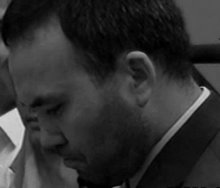
Friday , 09 February 2007
BEIJING — China has executed Uighur Muslim activist Ismail Samed on charges of "splitting the Chinese motherland" with rights groups and his lawyer slamming his trial as politically motivated and unfair.
"When the body was transferred to us at the cemetery I saw only one bullet hole in his heart," Semed's widow, Buhejer, told the US-funded Radio Free Asia (RFA) on Friday, February 9, Reuters reported.
Semed was executed in the far-west Chinese city of Urumqi, capital of the predominantly Muslim region of Xinjiang, at 9:00 am local time Thursday, February 8.
He was deported to China from Pakistan in 2003 and was sentenced to death October 31, 2005 by the Urumqi City Intermediate People's Court for "attempting to split the motherland" and "possessing firearms and explosives," Uighur sources told the radio station.
Sources close to the case said the charges were based on the allegation that Semed was a founding member of the East Turkestan Islamic Movement (ETIM), a Muslim Uighur movement which Beijing has branded terrorist.
China has waged a harsh campaign in recent years against Muslim separatists struggling to set up an independent "East Turkestan" in Xinjiang.
The Uighurs are a Turkish-speaking minority of eight million whose traditional homeland lies in the Xinjiang Uighur Autonomous Region in north-west China.
Xinjiang has been autonomous since 1955 but continues to be the subject of crackdowns by Chinese authorities, who have been accused by rights groups of religious repression against Uighurs in the name of counter-terrorism efforts.
Beijing views Xinjiang as an invaluable asset because of its crucial strategic location near Central Asia and its large oil and gas reserves.
Coerced
Buhejer said her husband had told the court that his confession had been coerced.
"They forced me," she quoted him as saying.
"…Previously, he had said his leg hurt, and his stomach hurt, and other parts of his body hurt, and that he needed medicine," she said.
The grieved widow said she was informed her husband was going to be put to death on Monday and was allowed to visit him briefly that same day, according to RFA.
"(It was) only for 10 minutes, we didn't have too much time to talk ...".
He told her to "take care of our children and let them get a good education".
Semed has a young son and daughter.
Two other Uighurs who testified against Semed were also executed, RFA quoted unnamed sources in the region as saying.
Unfair
The execution of the Uighur Muslim activist has drawn fire from human rights groups for lack of credible evidence on the charges.
"We don't think there was sufficient evidence to condemn him," said Nicholas Bequelin, a Hong Kong-based China researcher of Human Rights Watch.
"The death penalty was widely disproportionate to the alleged crimes ... his trial did not meet minimum requirements of fairness and due process."
The World Uighur Congress, an exile group, also said the prosecution had presented no hard evidence for a conviction.
"His trial, like most Uighur political prisoners' trials, was not fair," it said in a statement.
T. Kumar of Amnesty International in Washington also denounced the activist's execution.
He said "hundreds, if not thousands, were killed or seriously injured" in Xinjiang since February 1997.
Semed's execution came amid strained ties between China and Canada over the trial of an ethnic Uighur Canadian citizen in Beijing.
Huseyin Celil, 37, was arrested and jailed in China on terrorism charges in March 2006 and has not been heard from since.
Celil, who fled China a decade ago, arrived in Canada in 2001 as a refugee and became a Canadian citizen, but Beijing refuses to regard him as a Canadian citizen.
He was arrested in Uzbekistan in February 2006 while visiting his wife's parents and deported to China.
Celil's case was reportedly brought up during a meeting between Canadian Prime Minister Stephen Harper and Chinese President Hu Jintao on the sidelines of an Asian Pacific Economic Cooperation summit in Hanoi in November.
Celil's family charged that he was tortured by police.
"They forced him to sign a confession, or he would be put in a hole and buried alive," his mother told the Canadian television Thursday.
Copyright © 1999-2007 Islam Online All rights reserved Disclaimer. Republished with permission



No comments:
Post a Comment